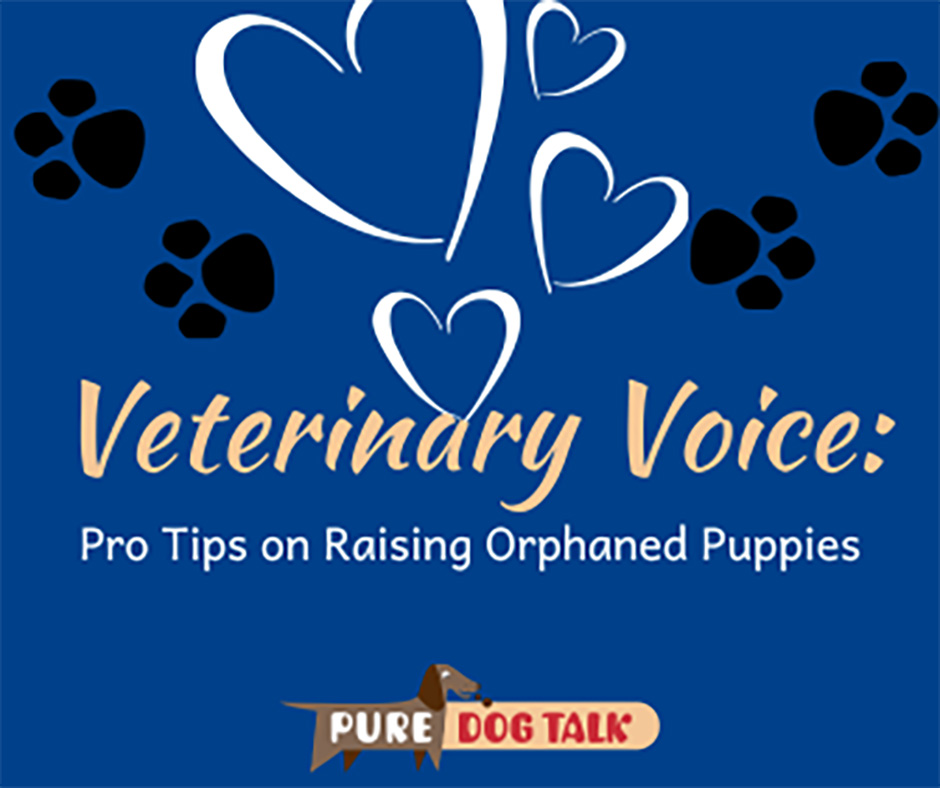668 – Pro Tips on Raising Orphaned Puppies
Pro Tips on Raising Orphaned Puppies
Dr. Marty Greer joins host Laura Reeves to discuss how to raise orphaned puppies. How to help dams not reject their puppies, increase milk production and deal with mastitis are all covered.
Pro tip number one is avoid having orphaned puppies, Greer notes. Increasing the dam’s calcium intake, using Adaptil collars and saving placental fluid after a Csection are on Greer’s list of ways to encourage the dam’s maternal instinct to kick in.
Pro tip number two is helping dams increase their milk production.
“I don’t know what there is magical about a Bratwurst, if it’s the fat, if it’s the salt, and I’m sure there’s other things as well, but that’s what I’ve had great success with. It helps them to eat better. It helps them to lactate better. The things that people use on the human side for lactation nurses are oatmeal and vegetables like sweet potatoes. So those are some things that you can do and they’ll eat those sometimes when they won’t eat their regular dog food.
“But whatever you have to do to get them to eat, jump through hoops to make it happen. Because if she is eating and drinking, then you don’t have to feed the puppies nearly as much. So you feed the machine that feeds the puppies.
“Now the other things that help. Are fenugreek and that is in the Oxy Mama product that Revival has for improving lactation. And then Reglan which is metoclopramide, a prescription drug that you can get from your veterinary clinic. And one of the side effects is that it improves lactation.
“So fenugreek and reglan make milk and oxytocin lets the milk be released from the glands so they work complementary to each other neither one replaces the other.”
Pro tip number three regards mastitis.
“I don’t wean puppies unless the bitch is really, really sick or there’s a giant necrotic opening in a gland. I will typically let the bitch still nurse her puppies because the amount of antibiotic coming through the milk is infinitesimally small.
“First of all, let’s talk about preventing mastitis. That means bathe her with a Chlorhexidine shampoo 3 or 4 days before she has puppies. So she goes into this clean. Don’t let her go out in the mud or herd your sheep into the trailer when she’s got newborns. And put her on a probiotic because that’s going to all reduce the risk of her developing mastitis.
“If she ends up with mastitis, make sure she gets enough fluids. She needs to be on an appropriate antibiotic and I put them on pain medication to bring down the fever, to reduce the inflammation and that again is safe for the bitch to take and still have the puppies nurse. There’s not enough that gets into the milk, but it’s going to hurt the puppies.
“It’s not just milk, it’s maternal skills as well. She’s licking the puppies, she’s stimulating the puppies, she’s treating the puppies the way puppies need to be treated. No amount of human hand-raising can substitute for that. I know we do our best but it’s still always best for a bitch to be with her puppies than it is to be separated if there’s any possibility of making that happen.”

